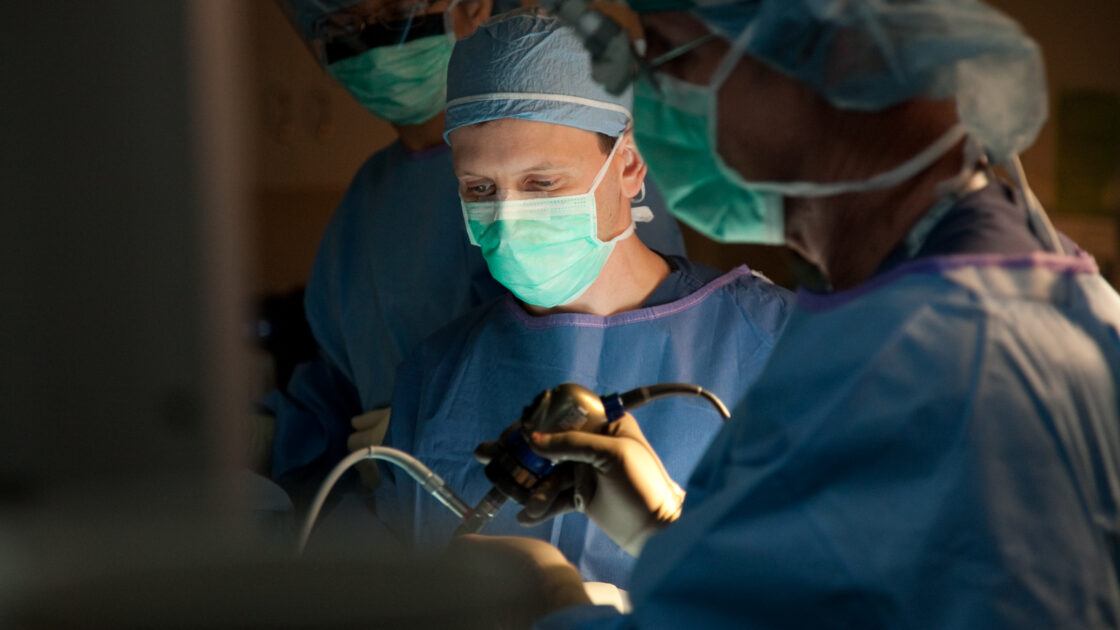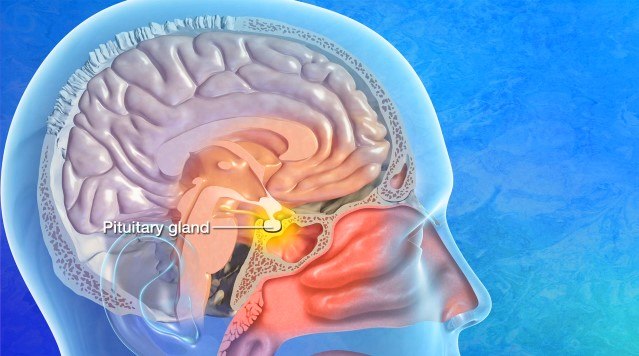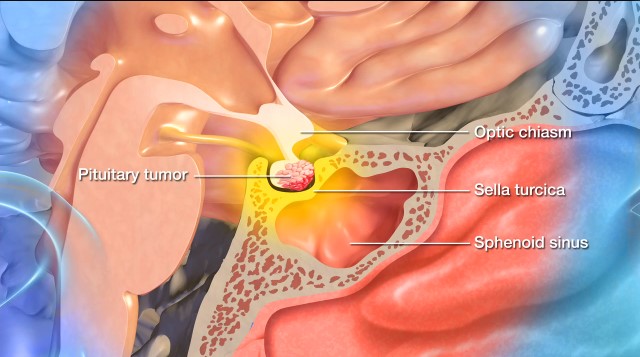
Pituitary Surgery Resolves Cushing’s Disease for Barrow Patient
When Jannette Diaz first walked into the Pituitary Center at Barrow Neurological Institute, she had an ever-growing list of symptoms, a stack of inconclusive test results, and a handful of prescribed medications that weren’t helping her feel better.
What she didn’t have were answers—until she met Barrow neuroendocrinologist Kevin Yuen, MD. After listening to Jannette describe her symptoms, he agreed with her suspicion that they were highly suggestive of Cushing’s syndrome. And although this meant further testing to confirm the diagnosis, Jannette felt relieved.
“Finally somebody is listening and seeing what I’m going through,” she remembers thinking. “It was the best day for me.”
Unusual Symptoms with Unexplained Origins
Jannette’s symptoms had been escalating for months. First she noticed persistent bloating, no matter what she ate or drank. Then came numbness and tingling in her fingers. “I almost had, like, butterfingers,” she explained. “Things would just fall out of my hands.”
When she started bruising more easily and healing more slowly than usual, she scheduled an appointment with a primary care provider. The provider suspected thyroid disease, but her test results came back normal.
As Jannette continued to seek answers, her symptoms continued to mount. She often struggled to catch her breath, experienced frightening memory loss, and watched most of her hair fall out. She received diagnoses of high blood pressure, high cholesterol, and pre-diabetes, but medications to control these conditions never seemed to resolve her symptoms.
Between scheduled visits with specialists and unexpected trips to emergency rooms, Jannette began to frequently miss work. She was eventually laid off from her job and had to move back into her parents’ house. Although she was grateful for their support, she ultimately felt a loss of independence; meanwhile, she was pouring almost all of her energy into finding an answer.
The changes to Jannette’s physical appearance eroded her self-esteem. To cope, she developed a routine of dressing up and driving herself to the mall. But her memory gaps, which she described as blackouts, made these outings feel increasingly risky. “That’s what scared me the most,” she said, tearfully. “I thought: I’m going to wake up one day and not remember anybody.”
Finally, Jannette desperately turned to Google. There has to be some underlying explanation for this intensifying cascade of symptoms, she thought. That’s when she stumbled upon some information about Cushing’s syndrome. “The symptoms that were listed, I had every single one of them,” she said.
Jannette had never heard of Cushing’s syndrome, which is classified as a rare condition, but also thought to be underdiagnosed. One challenge with diagnosing Cushing’s syndrome is that many of its symptoms overlap with multiple other conditions. Another is that the hallmark biomarker of the disease, elevated cortisol, can be cyclical; meaning it can be hard to catch with a single lab test.
A Diagnosis Brings Relief
Cushing’s syndrome is a condition in which the adrenal glands produce too much of a hormone called cortisol. The most common cause of Cushing’s syndrome is Cushing’s disease, which occurs when a tumor arises in the pituitary gland. This pea-sized organ attaches to the base of the brain, much like a cherry dangling from a stem, and is often referred to as the “master gland” because it monitors and regulates many bodily functions. In Cushing’s disease, the pituitary tumor causes an over-production of adrenocorticotropic hormone (ACTH), which then stimulates the adrenal glands to release excessive amounts of cortisol. Cortisol is a hormone with multiple functions within the body, including regulating stress response and metabolic functions.
A community endocrinologist referred Jannette to Dr. Yuen, who performed further blood and urine testing before ordering magnetic resonance imaging (MRI) of her brain. The MRI revealed a pituitary tumor around 5 to 8 millimeters in diameter, or about the size of a pencil-top eraser. It was small enough that Jannette was a candidate for endoscopic transsphenoidal surgery. This minimally invasive approach involves removing the tumor through the nose instead of opening up the skull.
“When I came here, I just knew I was in good hands,” Jannette said of her visit to the Barrow Pituitary Center. “The hospital’s right here, and there’s a good neurosurgeon here who focuses on pituitary tumors.”
Surgery First, Then Recovery
Jannette underwent pituitary surgery in September 2021 with Andrew Little, MD, a neurosurgeon who directs the Barrow Pituitary Center alongside Dr. Yuen. She awoke with a headache, but instantly felt grateful to be free of the tumor.
After a brief hospital stay, Jannette went home with instructions to temporarily refrain from lifting heavy objects, avoid sneezing with her mouth closed, and perform frequent sinus rinses. The hardest part of her recovery was more mental than physical, she explained, as it took time for her body to return to its normal state.

About three months after surgery, Jannette saw herself turning the corner: that persistent bloating began to subside and her hair stopped falling out. Today, 30-year-old Jannette no longer has Cushing’s disease and doesn’t need any medication.
It’s this kind of outcome that Dr. Little finds so rewarding about treating patients with this condition. “We’re able to give patients back control of their lives,” he said. “Patients with untreated Cushing’s disease die younger, and have a higher risk of strokes and heart attacks. With effective treatment, we can restore their vitality and help them live longer and more fulfilling lives.” Jannette has returned to work as a full-time dental assistant, a job she loves. Outside of work, she enjoys driving her 2019 blue Ford Mustang to car club meetups.
“Jannette had her whole life in front of her, but it was cruelly turned upside down when she developed Cushing’s disease,” Dr. Yuen said. “Following successful treatment with surgery and close medical follow-up, she is now able to start a new chapter in reclaiming her life.”
Her Takeaway: Be Your Own Best Advocate
Reflecting on the experience, Jannette expressed gratitude for her family, God, and her care team at Barrow. But she also noted the importance of advocating for herself throughout her search for answers. She’s sharing her story as a reminder to others to be persistent when they’re feeling unheard and losing hope.
“You know your body more than anyone else; you know what symptoms you have; you know what’s right and wrong,” she said. “It may take time and you might feel frustrated, but as long as you have faith, you’ll get through it.”




